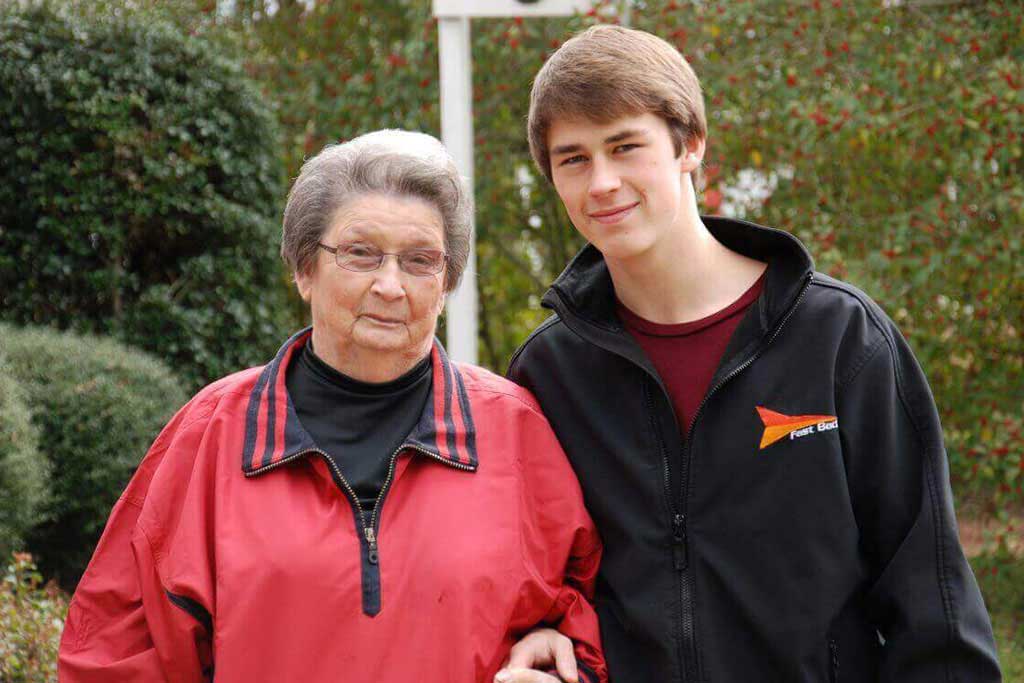I can remember when I called a fellow mother to tell her the exciting news that my daughter Mara had called me mom for the first time. I had to laugh at her reply: “You’ll grow to hate that word.
Apparently, so have some of the children. The Wall Street Journal reports that increasing numbers of offspring are calling their parents by their first names. Now this is not a new phenomenon. I can remember my 13 year-old cousin Bob had a phase when he’d say to his mom, “Oh, c’mon,Cleo. But as I recall, this was nipped in the bud pretty fast by my Aunt Cleora.
Who’s In Charge?
It is true that this first-name basis is occurring in an era that is less formal in regard to all authority. There are children who call their parents’ friends by their first names, too. When my kids were young, their friends called me by my first name because that is what they heard. They were little. But once they reached about second or third grade, they started calling me Mrs.Byrne. I’m not sure if they started this, or me. I know I wanted some distance and to be looked up to, and I think they wanted and needed this, too. I know I would never have wanted to call my friends’ parents by their first names when I was a teenager. They weren’t my friends. They were parents.
There are also schools in which students call teachers by their first names. Georgetown Day School in Washington, DC is one, and it has had this custom since 1945. It was founded at that time as a progressive school designed to break down what were thought to be unnecessary boundaries that inhibited interaction between teachers and students. Robin Williams famously tried to dismantle them in the movie Dead Poets’ Society. But this reform got its start in a different, and far more patriarchical, era. How is it working today?
There are numbers of parents today who let their children call them by their names, and some actually encourage this. There are experts who agree with them. Some feel that it’s okay to tolerate it as “classic teen boundary-testing and attention-getting behavior. Others recommend starting with an exploration of what is going on and what children are trying to accomplish when doing it. I certainly felt some sympathy for the girl who called her dad by his first name because she couldn’t get his attention any other way!
Parents As Friends
To understand this phenomenon, we have to look at what parents get out of it, and what kids get out of it. A mother quoted in the piece enjoyed being on a first-name basis with her children because it was a new way to connect and that it was nice to be trusted “like I was their buddy. One dad felt it was fine because teenagers don’t want to see adults as their bosses.
But the problem is that they still are, until the child moves out or is self-supporting. Optimally, there is a gradual change in the status of the parent-child relationship over the years, with the child gradually assuming more responsibility for him- or herself. But during the growing up years, generally assumed to be until age 18, parents and children are not equals. Nor should they be.
A family is not a democracy, with one person, one vote. We see all kinds of evidence around us of the underside of that approach. It is not a pretty picture when the kids run the family. And parents who have tolerated being called by their first names may have no one to thank but themselves when problems ensue.
Madeline Levine, a CA psychologist with a great deal of common sense, puts it in classic Dr. Spock words: Parents should firmer not friendlier. It helps maintain their position of authority. Respect for authority is one of the foundations for any social group or business that functions smoothly. Of course it is assumed that there is another part of the bargain: that the authority figures conduct themselves in a way deserving of respect. And here is where families of all kinds get in trouble.
Kids may call their parents by their first names because they don’t respect them and what they do and who they are. While kids can say “Good boy or “Good girl to a parent in a harmless or even humorous way, it’s not funny when it is faintly (or not so faintly) derisive. And sometimes parents want their children’s approval way too much. People comfortable with their authority don’t look for, much need, approval. They are self-propelled, and confident in what they are doing. Families function better this way.
One reason parents may encourage a first-name relationship is that they want to be friends with their kids. But as one dad pointed out, that is a little self-indulgent. We aren’t supposed to be equals with our kids, and we each need to have friends in our own generation who are peers. Both parents and children need to be comfortable with their own cohort, because we will have those relationships for a long, long time. The kids grow up and move out; we all need lives and relationships of our own then.
Should parents ask their kids, as the video recommended, why they are calling their parents by their first names? I’d say no. I’d also recommend against nicely telling them you would like to be called by your first name. That is tantamount to asking them if it’s okay.
This is a time to call them out and tell them not to do it, period. Yes, just put the kibosh on this experiment in taking power. As behavioral psychologists say, extinguish the behavior. Don’t put the issue up for discussion.
This isn’t tyrannical behavior. It’s smart leadership.
Stay Updated
Sign up for our monthly newsletter and weekly devotional











